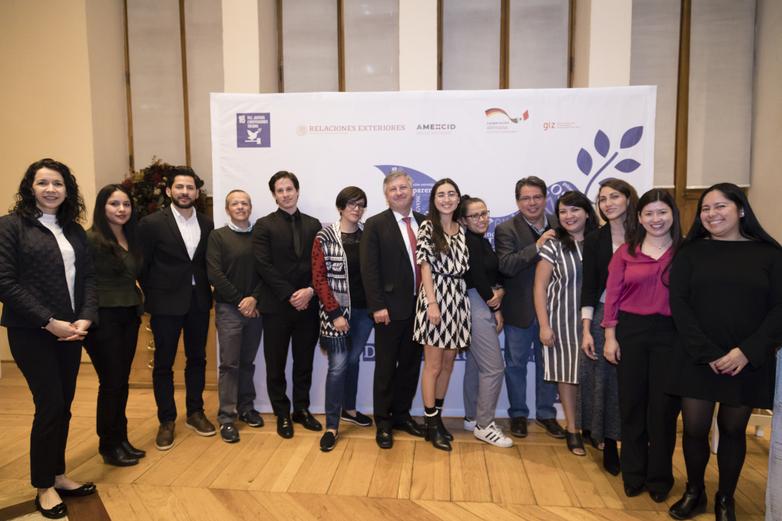Context
In 2004 the Mexican Government passed the Federal Law for the Promotion of Activities Undertaken by Civil Society Organizations (CSOs). Since then, a series of participatory structures have been established and the government programmes have been strengthened. This has contributed to qualitative and quantitative improvements in the CSOs’ reach and capacities, and to a better dialogue between them and the government. However, these capacities are often centralised in Mexico City. Consequently, the openings for organised civil society to influence public policy differ strongly between the levels of government and between the various regions of Mexico.
By 2017, the Mexican Office for Domestic Affairs (SEGOB) had identified more than 300 lobbying spaces for civil society at federal level, which it formally established with such mechanisms as laws and regulations. So far it has not been possible to introduce the same kind of system at the state or local authority level, but clear differences do exist between the government, the regions and the sectors. On a case-by-case basis, civil society assesses and questions the options for using these dialogue spaces to influence public policy. That analysis highlights certain quality criteria for the dialogue spaces and participation.
In 2015, Mexico and Germany joined more than 150 other countries in committing to pursue the 2030 Agenda and its Sustainable Development Goals. These 17 goals oblige the governments above all to promote a peaceful and inclusive society, which in turn requires an organised, articulate and active civil society. At the same time, they define targets for, among other things, anticorruption measures, transparency, accountability and access to justice. As such, they oblige governments around the world to strengthen civil society participation in areas relevant to the core questions of good governance, including public policy.
Objective
In Mexico civil society exerts greater influence on public policies for good governance, while paying special attention to the 17 Sustainable Development Goals as an integral component of the 2030 Agenda.
Approach
The project works to promote the effective influence of Mexican civil society actors on the formulation and implementation of inclusive public policies. They seek to influence the access to justice, the fight against corruption, citizen participation, transparency and accountability. In addition, the project supports anti-discrimination and gender equality approaches in general, and reinforces strategies to guarantee full rights and protections for women.
The project supports civil society lobbying activities, and offers training for the development of practical and strategic competences in order to strengthen the internal structure and the definition of lobbying strategies in the field of public policy. These training courses are aimed at CSOs at state and local authority levels. The project also enhances networking and learning in communities and districts, and it supports the practical application of the new skills by financing local projects.
At the same time, it promotes mechanisms and structures that allow governments to exchange ideas with civil society organisations and their networks. These provide an opening for civil society to exert an effective influence on relevant areas of public policy. To this end, the project strengthens and creates points of contact and discourse between CSOs and government bodies — in local and district authorities, and at federal level. It provides advice on and supports specific proposals for strengthening local participation mechanisms that serve the purpose of collaboration in good governance. The project also raises the local visibility of good practices in these spaces and mechanisms, as a result of inclusive policy processes.
